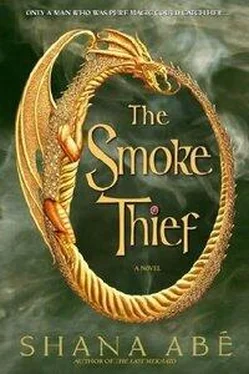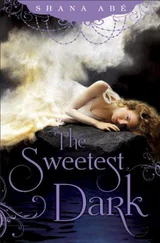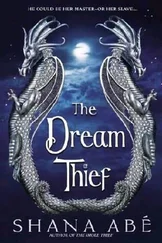It had been that thought, more than any other, that tethered young Christoff to this place. The humiliation of being caught. The futility of trying to flee his fate.
The fire snapped and popped, flinging sparks against the grate.
Kit lifted the newspaper and read aloud the duke's description of the thief: “ Swarthy, tall, and moste Foul of Face, with coal-black hair and a Scar upon his Cheek. ” He looked at the other two men. “Sound like anyone we'd know?”
Both George and Rufus shook their heads. The tribe ran to fair, with blondes and redheads aplenty, a very few brunettes. Kit couldn't even recall a tribemember with black hair, not in his lifetime.
Another lie, just as he'd thought.
“Are the family lists complete yet?” he asked George.
“Aye, my lord. We've gathered the names of every possible successful runner for the last forty years. Not many men, I'll tell you that. Six at most, and all were thought to be very much dead. Four apparently lost to fire—you remember the blaze that leveled the tavern in '33—one to drowning, and one bloke to, ah, wolves.”
Kit raised his brows. “Wolves?”
“That's what his son said. Stirling Jacobs was his name. Liked to hunt at dawn. Liked a challenge. Known to venture out beyond our boundaries. Bones were found, possibly his. That's all.”
“How old would this man be now?”
“Let's see . . . nearing eighty, I'd say.”
Kit gazed at him over the mess of china and papers.
“Your instructions were to consider everyone .” George shifted in the chair, uneasy. “And I've bloody well considered everyone.”
“All right.” He pushed back from the table and stood, restless, his mind working the puzzle, turning over the pieces. “And the other man. The drowning. What of him?”
“How old would he be, do you mean?”
Kit nodded, staring out one of the windows. Against the night sky he could see the reflection of the fire, the plump smeary shadow that was Sir George, and the more distant one of Rufus.
“Twenty-three, thereabouts,” said George, after a moment. “He died young.”
“His body was never recovered?”
“Not—entirely.” George shifted again. “There was a hand. It wore his ring—”
“Gads,” interjected Rufus, revolted.
“—and his coat was found in the reeds down by Aberthon.”
Something was bothering Kit. Something was missing. It circled the back of his mind, a distant thought, too elusive to catch. Something about the river.
“A man could live without a hand,” said George significantly, into the snapping silence. “He could still steal too.”
Yes. He could.
Kit closed his eyes, pondering the mind of the thief, the careful game he played with the press and the law. What sort of person would he be?
Intelligent, without doubt. He had to have figured a way to openly infiltrate the ton 's finest houses, to walk their rooms. The drákon could not manifest anywhere they could not see.
Brazen. Anyone who fled Darkfrith truly threw their fortune to the winds. The punishment for running was usually imprisonment. Or death.
Cunning. Until recently, no one had missed him.
Defiant. He'd allowed the press to lionize him and still kept stealing.
And lucky. Because he'd done the one thing Christoff himself had never managed: he had cast off the shackles of his birthright.
“I'm leaving tomorrow,” he said to the black glass panes.
“Tomorrow? But that's three days early—”
“I assure you, Rufus, I know how to count. I want to be there sooner than the papers reported. You and the rest will follow on schedule with the diamond.”
“The council—” began George.
“They won't like it, I know. But they will accept it. From me.”
Another rule. No member of the tribe left the shire without permission from the council. Except, of course, the Alpha.
He waited, not turning, listening to the fire mutter.
George scraped back his chair. “Aye, my lord.”
“Do you truly think it will work?” asked Rufus. “Will showing the diamond at the museum draw out our Smoke Thief?”
“It will. He'd never come here for it. But he'll consider London his domain. He won't be able to resist.”
“A great risk,” said George evenly. “Letting it leave the shire. The council had a point in that, my lord.”
“It must be the true stone. You know that. He'll be able to discern an imitation at once. And there will be many of us, and one of him. The Stewart Museum is large enough to allow any number of us to filter through the crowds.”
“Aye, my lord.”
Behind him, the servants—tribemembers, all—were taking advantage of his standing, quickly clearing the last of the meal, ghosts in the glass who threw him hurried looks and vanished as noiselessly as they had come.
Kit had grown used to those looks over the years, part fear, part awe. As if he were a creature beyond even them. As if he were—indomitable.
He thought of all the times he'd wanted to run himself, to escape Darkfrith. He looked out at the stars thrown across the cold sky and envy of the thief speared through him bright as pain—just a flash, and then he smothered it.
“He will come for the diamond,” he said, very quiet.
I would.
He crouched, nude and alone, at the highest edge of the pitched roof of the manor, letting the night wind lift his hair, his skin chilled, his muscles flexed: as fixed to the earth as the stone gargoyles that snarled from Chasen's battlements. The stars were closer here but never close enough; Christoff stood and leapt from the roof.
For an instant he fell. There was a real terror to it, blood-pumping, heart-screaming energy. But at the last second he Turned, and the rushing ground became a blur and the wind pushed him up, up into the sky.
He was free.
Kit soared above the land, the manor shrinking, the details of the ground blending to dark and woods and pinpoints of light. There would be others out on this moonless night—his hunters, his guards—but he sensed them before they did him, and so skidded over them, too swift, too wild for them to follow.
Not that they would anyway. They knew well enough when to let him be.
He rode the winds better than anyone, fathomed the secrets of the night, where to go, how to hide. He had been stealing out like this from the very moment he could, that first night of his transformation. At ten years of age he had been the youngest of the tribe ever to survive the ordeals of the Turn. But he had survived it. And with the stars as his echo, Kit could fly.
Far Perch, that elegant London manse, was deserted.
He had expected it, of course, but still found the blank windows and ungarnished front steps disconcerting. His mother had kept urns of roses by the doors, ruffled coral buds scented of spice in the summer and in winter pruned down to sticky stalks. How strange; he had forgotten that until this moment. His father, as Kit recalled, had them torn out after her death.
The urns were empty now, lacking even a cobweb to tremble in the breeze. He touched a finger to one of the limestone lips, bronzed skin against pitted white, then dropped his hand. The knocker connected with the door once again.
No one answered. He had retained his father's elderly caretakers—not drákon, no one from the tribe could be left loose in the city for so long—but it seemed they couldn't hear him. It was a damned big house.
Or perhaps they were out.
No one had come for his stallion either; he'd had to stable him himself in the back.
Kit reached for the key ring in his pocket and unlocked the double doors.
“Hello?”
Old Stilson did not appear. Neither did his wife. Kit glanced behind him, to the stylish square of buildings and trees and cobblestones that flanked the mansion, then stepped into the vestibule and closed the doors.
Читать дальше












